We live in a society that is often quick to judge others for their actions. We don’t always do this on purpose, but sometimes when we do not understand a situation, we are quick to throw stones. For someone that dedicates their life or a large portion of their life to rescuing and rehabilitating animals, it is no easy feat. This takes perseverance, dedication and, most of all, thick skin. And for some people, it comes with devastating compassion fatigue.

People who rescue animals from hoarding situations know the horrors of animal abuse all too well.
And sadly, brushing that off at the end of the day is no easy task. It’s difficult for an animal lover, let alone an animal rescuer, not to feel pain knowing the tragedy an animal has endured. It’s something that you carry with you, and you try your best to ensure that as long as that animal is in your care, you never want them to feel pain like that ever again.
But what about the next animal, and the animal after that? As we know there is an epidemic of homeless and displaced in this world. So how can an animal care worker ever feel as if their work is “done” at the end of the day?

For animal care professionals, this constant stress and worry is known as compassion fatigue.
As it’s defined in this informational PDF, it gives a clear view into the mind of what these passionate people might feel after some time–and even more so on those difficult days and heart-wrenching abuse cases…
The “double-edged sword” phenomenon of working in the animal care industry. You’ve dedicated your life to making a positive difference for animals. But the emotional stress is draining, exhausting and taking a toll on you. You can’t imagine doing anything else with your life, but outside of your work, do you have a life?
Your work is in the animal care industry, not necessarily because you’ve chosen to, but because it’s chosen you. You cannot exist without doing all that you can to care for and save animals. You love what you do. But the heartbreak and emotional strain on you is sometimes too much to bear. There is a term for all of this, it’s called Compassion Fatigue (further referenced as CF). And it is normal, and very real.
Not only does CF dominate your professional life, but it always rears its head in your personal life.
It’s sleepless nights, exhaustion, acute sadness, depression, isolation from friends, a life that feels out of balance, rides on emotional roller-coasters, and anger towards people in general for the terrible ways in which they treat animals.
Dr. Robert G. Roop is the President of the Humane Society University and author of Compassion Fatigue in the Animal-Care Community. CF is most prevalent in the animal care field than in any other field. Why is this?
He believes that it is the sheer volume of animals, of beings, that animal care workers deal with on a daily basis. Unlike physicians for humans, or psychologists or counselors, people in the animal care field, specifically in shelters and rescues, can be caring for up to 500 animals a day in some cases. The number of lives and suffering that one is exposed to is much higher than in human care fields. This creates a burden on the heart and soul of the caregiver. Everyone responds differently to these stresses and everyone has different coping skills available to them.
Psychology Today took time to research this phenomenon for animal care givers. And their results resonated to what was mentioned above: the work is never done.
Our minds get satisfaction once tasks are completed. And sadly when it comes to the animal rescue world, the work truly never ends.
Compassion fatigue clearly exists in the world of animal welfare. But it is also present in the human healthcare world. Specifically, those professionals who dedicate their lives to helping the sick and injured. One thing is certain. It is never our right to judge their efforts, because we only see what exists at surface level.
One of the main issues for those experiencing compassion fatigue is that it manifests itself without the person even realizing that this is, in fact, what they are dealing with:
“People don’t always recognize compassion fatigue,” says Jeff Boehm, executive director of the Marine Mammal Center in Sausalito, California, the largest marine mammal rehabilitation center in the world.

Thankfully, there is a support system in place for those dealing with this issue, and it’s known as the Compassion Fatigue Awareness Project.
Founded by Patricia Smith, its mission is “to promote an awareness and understanding of Compassion Fatigue and its effect on caregivers.“
Smith’s goal is to spread awareness for the project and for those who are living with compassion fatigue to feel supported and be taken seriously:
“Not only do [animal welfare workers] suffer daily in the work they do, they also often deal with the public’s total disregard and criticism of their work. Shelter work was one of the most distressing and sorrow-filled work I’ve ever done.”
(If you’d like to learn more about what compassion fatigue is, the project website has a detailed description here.)
Below is a heartbreaking example of the very real trauma that these rescuers experience, and hopefully it can shed more light to this subject of compassion fatigue for animal rescuers…
Next time you think of compassion fatigue and stop to wonder if it is real, think of your own cat(s) in your home that you call your own.
Perhaps they entered your life by way of an animal rescue or shelter? Know that others cared for them, likely nursed them back to health, and that yours was one of the lucky survivors. All because of the kindhearted, selfless volunteers/underpaid workers that helped them along the way. Consider yourself lucky that someone cared that much to give them the second chance they deserved!
And if you happen to be a person who rescues animal, thank you from the bottom of our hearts for everything you do for animals in need. You are the real heroes.
Want To Know The Signs Of Compassion Fatigue? Read Below…
How to Know if you are in Trouble – Symptoms of Compassion Fatigue:
Emotional:
When you are constantly exposed to harsh, painful realities (trauma) and you are not able to debrief (to talk about what happened and how you feel about it), all that you stuff inside builds up into a reservoir, until you are exhausted, or angry, or feel like you’ll explode, or feel that you hate all people, or you’ve lost your enthusiasm, joy, and hope.
- You can feel depressed and want to quit your job, feeling stuck in depression.
- You may have sudden outbursts of anger.
- May feel sad, with your tears always just below the surface. Many long-time workers are experiencing long-term grief
- You may feel cynical, or numb, or hardened, like nothing phases you.
- May be having nightmares or flashbacks (where you repeatedly see images of suffering animals from the past).
- You may switch back and forth. One minute feeling angry, the next minute numb, the next minute sad, the next minute depressed.
Occupational/Social:
- Feeling isolated from family and friends.
- You may have problems relating to your co-workers or the public.
- You may snipe at others, be aggressive, sarcastic, uncooperative.
- May notice your usual high productivity is now low, or you are frequently late to work, or accident prone.
Physical:
- You may feel exhausted or ill.
- Frequent health problems may develop.
- You may have difficulty sleeping, difficulty breathing.
- You may start abusing alcohol, food, drugs (or doing other destructive behavior) to suppress your feelings.
Intellectual:
- You may have difficulty concentrating, difficulty making decisions.
- Your thoughts may race.
Spiritual:
- You may feel hopeless or cynical.
REMEMBER: SPAY/NEUTER, FOSTER, VOLUNTEER, TNR and as always, ADOPT, DON’T SHOP!
Related Story: Animal Rescuer Poem Explains Just Why People Continue To Help; No Matter The Struggle


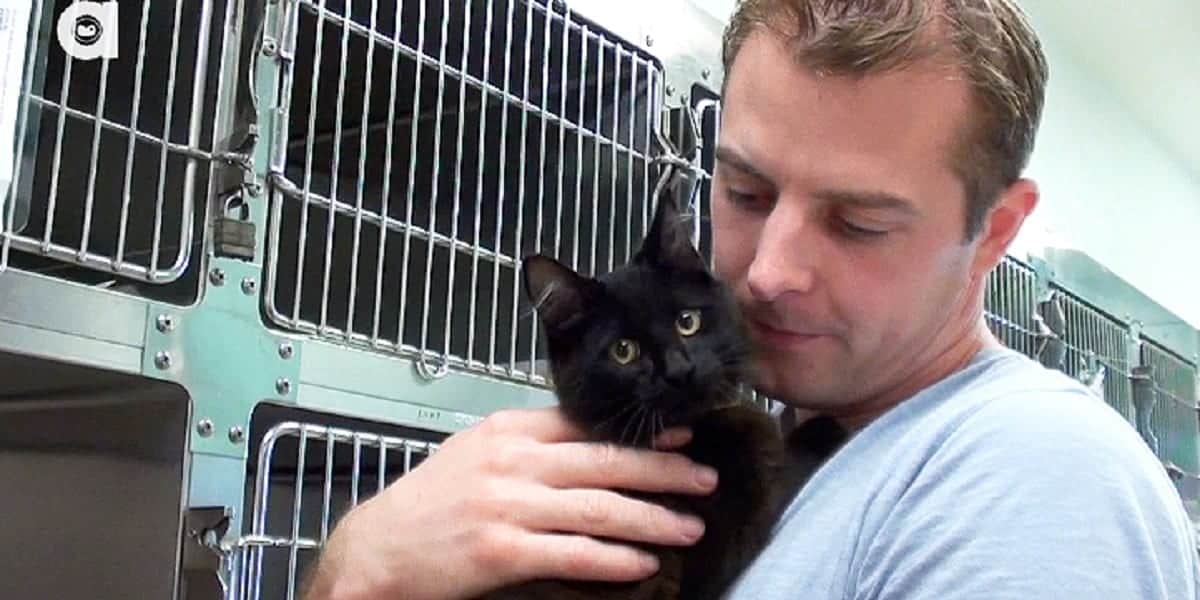



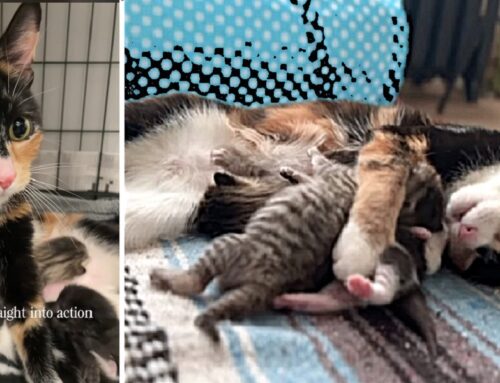



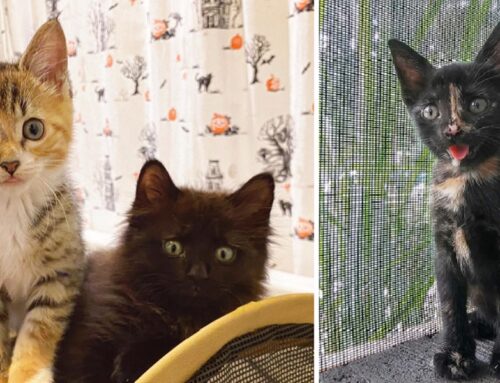


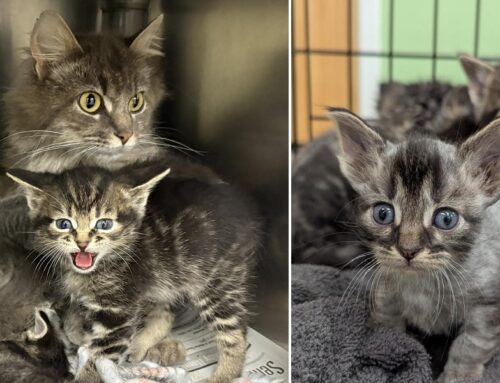
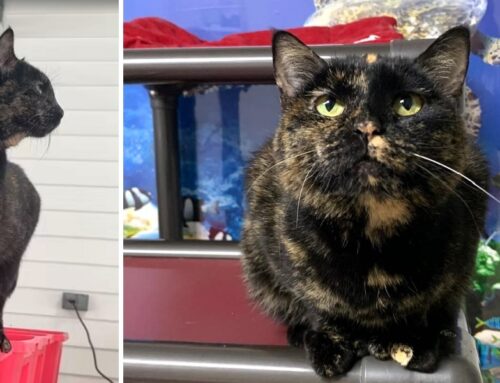
Thank you so much for this article! I was an independent rescuer for nearly 20 years and finally had to stop. I could only take on so many at a time to help. Once other people found out that I rescued, so many pushed so hard for me to do more than I knew I could! One time there was an employee that quit my company and threatened me personally with a law suit because I “refused” to “fix a feral cat population” happening at one of my client’s properties, which to this former worker meant I was personally contributing to animal cruelty! Even though such a threat seems ludicrous, I live in California. It is actually too easy to do exactly that sort of civil suit here in my state, because he claimed to be “emotionally damaged” by that experience. I had to hope that this person’s lashing out was just hot air, which thankfully, turned out to be so. This example prooves the very real pressure placed on rescuers to over-extend. And it is because of that very horrific pressure that I am currently “out of the game”, although I do continue to donate money as I can to a local rescue group. Maybe one day, I’ll get back in it. And yes, I DO feel a horrible, painful guilt for stepping away, knowing there is still so much suffering to be addressed. But after that threat, I have to protect myself, my company and the employees working for the company (in which the scope of service has nothing to do helping animals) from very the real possibility of civil litigation because I set a boundary to prevent getting personally overwhelmed. So for now, I work to reconcile that guilt by enjoying my life with the four cats that I rescued over the last 3 years, rehabilitated, and foster failed. On behalf of Magic the Twinkie Feral Cat, T.C. the Fearless Tiger Kitty, Buddy the Gentleman Couch Potato, Talira the Tortie Love Bug, and I, thank you again for this article.
You are so welcome, Robin!!
God bless you for doing your part to help the helpless animals when you were “in the game”. Rest assured that you saved many little lives and contributed to making their world a much better place to live long lives in loving homes. I am so sorry you experienced such a traumatic experience because of your kindness that was taken advantage of by the insane former employee. I, myself, have rescued four feral kitties over the past 16 years that came to my home by chance. I fed them, earned their trust, then invited them into my home. They have all lived very long lives that they wouldn’t have experienced if they had remained outside. Remember…we cannot save all of them, but the ones we DO save are thankful. And to see them so happy and serene makes the effort to save so rewarding.
I should say that I am not surprised about the mental stress that comes form saving and caring for these little ones. Thank you for the information. And for what to look for in ourselves and others. God Bless
This is such important information to get out to those who work with these poor animals. I am a nurse who has done both medical and psychiatric and have seen how this has affected some of those I have been close with in the rescue community. It is extremely refractory to intervention as when you suggest taking a short break the person invariably says that there is “too much work to do.” I know if I was not handicapped I would be knee deep in helping but caring and would be fostering more elder and/or handicapped felines. As it is I take comfort caring for my six charges, all rescues, that fill my days with love as only those who have come from dire circumstance and been saved can.
I found this very informative I have rescued for the past 28 years in the North of Cyprus it is an endless battle I have 25 dogs that live with me my intention was to start reducing my dogs as I am now 65 and suffer fro crippling arthritis I am also aware that my dogs can out live me and that is a constant worry unfortunately this hasn’t happened I am exhausted and deeply saddened by the situation here now that seems to have gone backwards for the past 2years as the powers that be decided to take over the welfare of the animals in need.Unfortunatley it was false promises yet again so the struggle carries on with no reprieve for the animals and all the people who make this there life’s work
I too stepped away after 20 years. It’s not just the horror you see when they come to you or the fact that they keep coming but for me it was the number of them I lost. They’d come to me in such awful condition that the heavy treatment they had to have to survive often times was so much all at once it alone ended their life. It’s not like a baseball season where you give it your all and win some or lose some. The rescue season never ends and sometimes all you do is lose. I have two right now that were next to dead when they arrived but through hard work and financial depletion they overcame everything and finally went up for adoption. But 15 years later they’re still here with me, still up for adoption. Three of my rescues are still with me after two to four years. One so traumatized by the abusive hoarding situation she came from she tore through two chain link kennels and lost her life fighting with the dog in the next one. One 50 lb adult abused her whole life is still after months of being with me is so terrified of people that she even crawls to and falls over peeing on herself when my 20 lb toddler approaches her kennel with a treat, which she has yet to take from her hand. I’ve had dogs brought to me who had been doused with gasoline and SET ON FIRE. Bloody, slimy messes you could smell from a mile away. Mange puppies who meet their untimely death because no matter how hard I tried I couldn’t reverse the poison in their blood from the burnt motor oil they’d been repeatedly dipped in. I’ve had dogs in such horrific condition I couldn’t tell you what breed they were because it was just a skeleton wrapped in some black scabby, crusty, bald, swollen goo. You spend your time, money and effort pouring out your heart and soul for weeks fostering the sweetest and happiest future momma only to find yourself having to burry her entire litter after they’re all stillborn and massively deformed. I accepted 217 animals last year. I burried 68 of them. I stepped away because I was tired of death. I was tired of apologizing to a dead animal when it wasn’t me who should have apologized. It wasn’t me who should have held all the grief. I stepped away not so much because I didn’t want to help them but because I found myself so disgusted with people for letting an animal get to this condition that I was no longer a friendly person to anyone. So here I am with 17 animals that I no longer have available for adoption because I no longer trust anyone enough to know the animal won’t end up in another rescue somewhere down the road.
Thank you for the article. Fortunate for myself I have been able to do rescue for the last 10 years. Like all rescuers, I’ve seen it all. My problem will be knowing one day my age or health will require me to walk away. I dread that day more than anything in the world. Because I know there is not enough rescuers ever to take over what is needed. So far I’ve been blessed. I pray generations behind me get educated to spay and neuter and get raised with compassion to love all animals and people. This world needs more love and compassion.
What makes rescue work with stray animals is that your mind always has a euthanasia list if worse comes to worst. It’s a fact that human caregivers do not face
The only words are:
GOD BLESS YOU ALL!
I’m from Brazil…
Dear God, after 50 years of rescuing, using up my pension and 401k for spay/neuter, shots, KEEPING 95% of the strays I found, working in a law firm just for money, 12 hour days, working my ass off to clean and care for 26 animals, by myself. Taken to court 3 times, I won each time, one judge actually thanked me, but the constant barrage of violation notices, and I was a young widow from 2001, no wonder I’m fucking nuts today at 65. On permanent disability for mental illness — depression (under control), crippling panic and anxiety disorders. But… I’d do it again.